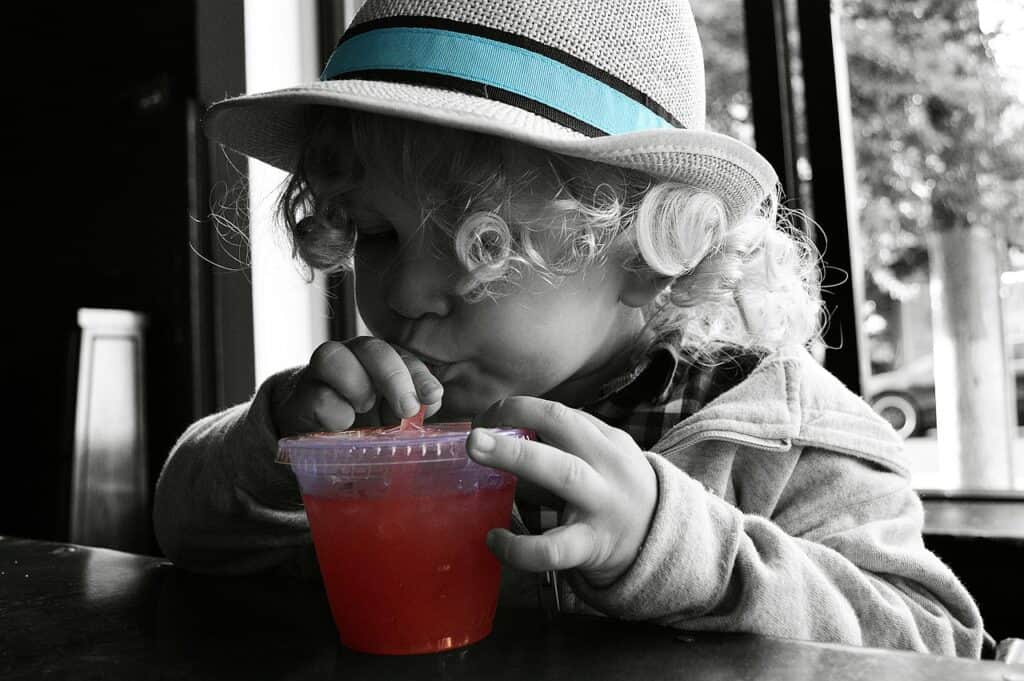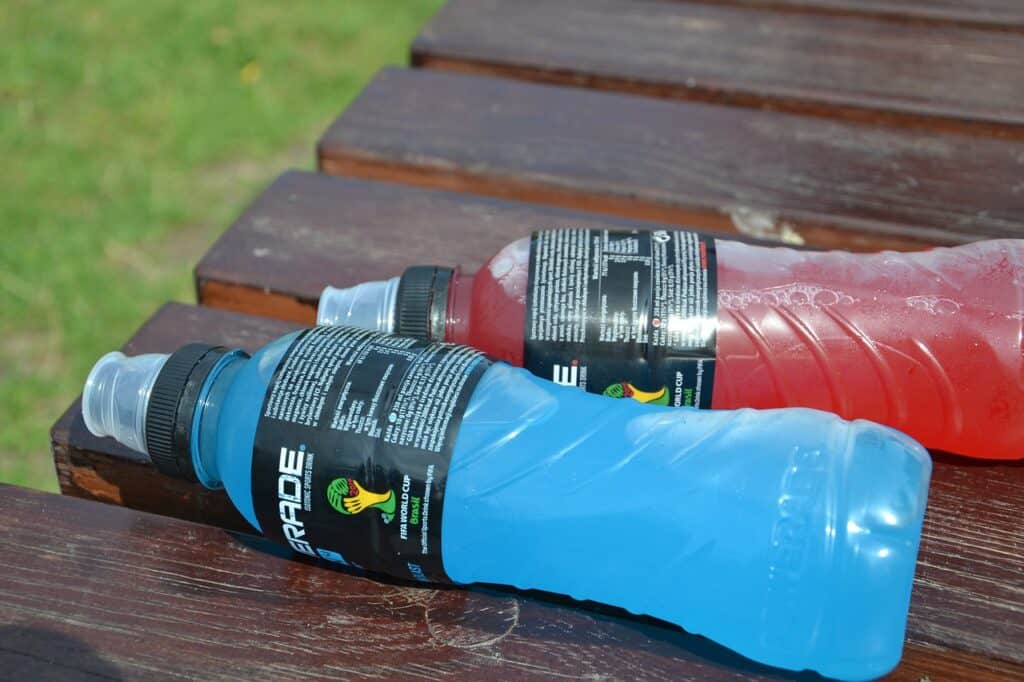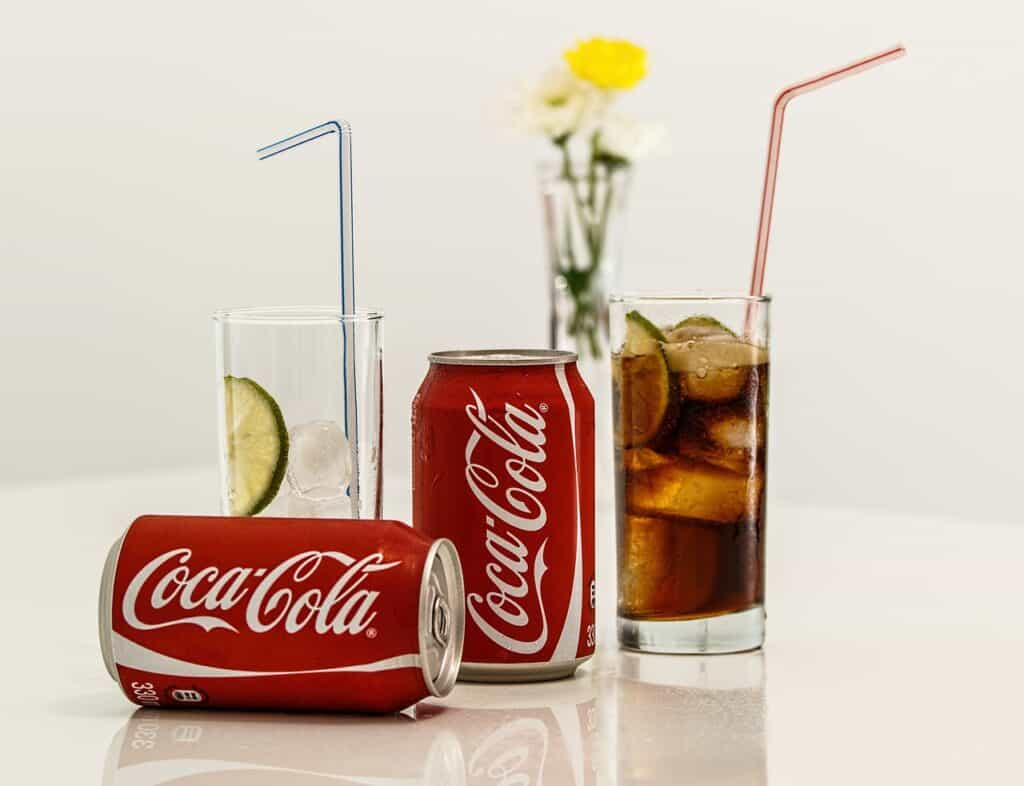G Fuel is a popular energy drink that claims to boost energy, focus, and endurance. However, concerns have been raised about the safety of G Fuel, particularly for kids. Many parents wonder if it is safe for their children to consume G Fuel, or if it can have harmful effects on their health.
G Fuel contains a variety of ingredients, including caffeine, taurine, and vitamins, that are commonly found in energy drinks. However, it also contains some ingredients that are not typically found in energy drinks, such as green tea extract and acai berries.
Some of these ingredients may have potential health benefits, but others may have negative effects on health, particularly in children. The caffeine content of G Fuel is also a concern, as excessive caffeine consumption can lead to negative health effects.

Key Takeaways
- G Fuel is a popular energy drink that claims to boost energy, focus, and endurance.
- G Fuel contains a variety of ingredients, including caffeine, taurine, and vitamins, that are commonly found in energy drinks.
- Concerns have been raised about the safety of G Fuel, particularly for kids, due to its ingredients and high caffeine content.
1. What is G Fuel?

G Fuel is a powdered energy drink that is marketed towards gamers and athletes. It is produced by Gamma Labs and is claimed to provide increased energy, focus, and endurance.
The product comes in a variety of flavors and is sold in individual packets or tubs.
The G Fuel formula contains a combination of ingredients such as caffeine, taurine, and vitamins that are commonly found in energy drinks. However, the exact amount of each ingredient is not disclosed on the packaging, which can be a concern for some consumers.
G Fuel is advertised as a healthier alternative to traditional energy drinks, as it is sugar-free and contains antioxidants. However, it is important to note that excessive consumption of any energy drink can lead to negative health effects, such as increased heart rate, dehydration, and insomnia.
Overall, G Fuel is a popular choice among gamers and athletes who are looking for a quick energy boost. However, it is important to consume it in moderation and be aware of the potential risks associated with consuming powdered energy drinks.
2. Ingredients of G Fuel

G Fuel is a popular energy drink marketed towards gamers and athletes. It claims to provide a boost in energy, focus, and endurance without the crash that often accompanies other energy drinks. However, some parents may be concerned about the safety of G Fuel for their children.
Here are the ingredients found in G Fuel:
- Caffeine: G Fuel contains 150mg of caffeine per serving, which is equivalent to about one and a half cups of coffee. Caffeine is a stimulant that can increase alertness and improve cognitive performance.
- Sugar: G Fuel is sugar-free and uses artificial sweeteners such as acesulfame potassium and sucralose instead.
- Taurine: This amino acid is often found in energy drinks and is believed to improve athletic performance and reduce fatigue.
- Vitamins: G Fuel contains several vitamins, including vitamin C, vitamin E, and vitamin B12. These vitamins are essential for maintaining good health and supporting various bodily functions.
- Minerals: G Fuel also contains minerals such as magnesium and potassium, which are important for maintaining electrolyte balance and supporting muscle function.
- Electrolytes: Electrolytes are minerals that help regulate fluid balance in the body and are often lost through sweat during physical activity. G Fuel contains electrolytes such as sodium and potassium.
- Antioxidants: G Fuel contains antioxidants such as green tea extract and pomegranate extract, which can help protect cells from damage caused by free radicals.
- Amino Acids: G Fuel contains several amino acids, including L-citrulline malate and L-tyrosine. These amino acids are believed to improve athletic performance and reduce fatigue.
- Artificial Sweeteners: As mentioned earlier, G Fuel uses artificial sweeteners such as acesulfame potassium and sucralose instead of sugar.
- Citric Acid: This natural preservative is added to G Fuel to enhance its flavor.
- Maltodextrin: This carbohydrate is added to G Fuel to improve its texture and taste.
- Glucuronolactone: This compound is believed to improve mental performance and reduce fatigue.
Overall, G Fuel contains a variety of ingredients that are commonly found in energy drinks. While some of these ingredients, such as caffeine and taurine, have been shown to improve athletic performance, others, such as artificial sweeteners, have been the subject of controversy.
It is important for parents to carefully consider the ingredients in G Fuel and make an informed decision about whether it is appropriate for their children to consume.
3. Caffeine Content in G Fuel

G Fuel is a popular energy drink that is marketed towards gamers and athletes. It is known for its high caffeine content, which is one of the main reasons why it is so popular.
However, the caffeine content in G Fuel has raised concerns about its safety, especially for children.
Caffeine is a natural stimulant that is found in many foods and beverages, including coffee, tea, and chocolate. It is also added to many energy drinks, including G Fuel. Caffeine works by blocking the action of adenosine, a neurotransmitter that promotes sleep and suppresses arousal.
This leads to increased alertness, improved mood, and enhanced cognitive performance.
The caffeine content in G Fuel varies depending on the flavor and serving size. According to the G Fuel website, a 16-ounce serving of G Fuel contains 140 milligrams of caffeine, which is equivalent to about 1.5 cups of coffee.
This is a significant amount of caffeine, especially for children, who are more sensitive to its effects.
The American Academy of Pediatrics recommends that children and adolescents should not consume more than 100 milligrams of caffeine per day. This is equivalent to about one cup of coffee.
However, many children and adolescents consume more caffeine than this on a daily basis, often through energy drinks and other sources.
In summary, G Fuel contains a significant amount of caffeine, which may be harmful to children and adolescents if consumed in excess. Parents should be aware of the caffeine content in G Fuel and other energy drinks and monitor their children’s caffeine intake to ensure that it stays within safe limits.
4. Sugar Content in G Fuel

G Fuel is marketed as a sugar-free energy drink that contains natural ingredients such as antioxidants, vitamins, and caffeine. However, some may wonder whether G Fuel is truly sugar-free and safe for kids to consume.
While G Fuel does not contain any added sugars, it does contain a small amount of naturally occurring sugars from the fruit extracts used in its formula. According to the nutrition label on the G Fuel website, each serving (7g) of G Fuel powder contains less than 1g of sugar.
Compared to other energy drinks and sodas, G Fuel’s sugar content is relatively low. For example, a 12oz can of Coca-Cola contains 39g of sugar, while a 16oz can of Monster Energy contains 54g of sugar.
It’s important to note that consuming too much sugar can have negative health effects, including tooth decay, weight gain, and an increased risk of developing type 2 diabetes. While G Fuel’s sugar content is low, it’s still important for kids to consume it in moderation as part of a balanced diet.
Overall, while G Fuel does contain a small amount of naturally occurring sugars, its sugar content is relatively low compared to other energy drinks and sodas. However, it’s still important for kids to consume it in moderation and as part of a balanced diet.
5. Health Effects of G Fuel

G Fuel is a popular energy drink among gamers and athletes, but its health effects on children are a growing concern among parents and health experts. While G Fuel claims to be a healthy alternative to traditional energy drinks, it contains high levels of caffeine and other stimulants that can have negative effects on children’s health.
Consuming too much caffeine can lead to increased heart rate, high blood pressure, and dehydration. These effects can be particularly dangerous for children, whose bodies are still growing and developing.
In addition, G Fuel can disrupt sleep patterns, leading to insomnia and restlessness.
Children who consume G Fuel may also experience behavioral changes, such as nervousness and anxiety. Some children may even experience palpitations or irregular heartbeats after consuming G Fuel.
Overall, the health risks associated with G Fuel make it a poor choice for children. Parents should encourage their children to seek healthier alternatives, such as water or natural fruit juices, to stay hydrated and energized.
6. G Fuel and Kids

G Fuel is a popular energy drink marketed towards gamers and athletes. It contains caffeine, vitamins, and other ingredients that are said to boost energy, focus, and endurance.
However, many parents and health experts are concerned about the safety of G Fuel for kids and adolescents.
According to the American Academy of Pediatrics, caffeine intake should be limited in kids and adolescents. The recommended daily limit for children aged 12-18 is 100mg, which is roughly equivalent to one cup of coffee.
However, G Fuel contains 150mg of caffeine per serving, which is higher than most energy drinks and coffee.
While G Fuel is not recommended for kids under 18, the company does not have an official age limit or age restriction for its products. This has led to some confusion and controversy among parents and health experts.
Some parents argue that G Fuel is safe for kids in moderation, as long as they are healthy and active. They also point out that G Fuel contains vitamins and antioxidants that can be beneficial for kids.
However, others are concerned that G Fuel can cause side effects such as jitters, headaches, and heart palpitations, especially in kids who are sensitive to caffeine.
Overall, the safety of G Fuel for kids is still a topic of debate and research. Parents should talk to their kids’ doctors and read the labels carefully before giving them any energy drinks or supplements.
It is also important to monitor their caffeine intake and watch for any adverse reactions.
7. G Fuel and Adults

G Fuel is a popular energy drink that is marketed towards gamers, athletes, and anyone who needs a boost of energy and focus. While it is often associated with kids and teenagers, G Fuel is also consumed by many adults.
Adults who use G Fuel often do so to improve their focus and concentration, especially during intense activities such as gaming, sports, or endurance training. The drink contains a blend of caffeine, vitamins, and amino acids that are said to enhance mental alertness and reduce fatigue.
However, it is important to note that excessive consumption of G Fuel can have negative effects on sleep quality and overall health. The high caffeine content can disrupt sleep patterns and cause insomnia, which can lead to decreased performance and concentration during the day.
Moreover, G Fuel is not a substitute for a healthy diet and exercise routine. While it may provide a temporary boost of energy, it does not replace the benefits of a balanced lifestyle.
In conclusion, G Fuel can be a useful tool for adults who need a quick energy boost and improved focus, but it should be consumed in moderation and as part of a healthy lifestyle.
8. Possible Risks of G Fuel

G Fuel is marketed as a performance-enhancing energy drink, but it is important to consider the potential risks associated with its use, especially in children. While G Fuel contains various vitamins, minerals, and antioxidants, it also contains several stimulants and other substances that may cause adverse side effects.
One of the primary concerns with G Fuel is its high caffeine content. A single serving of G Fuel contains approximately 150mg of caffeine, which is more than the recommended daily intake for children and teenagers.
Excessive caffeine consumption can lead to adverse side effects such as restlessness, anxiety, nausea, and difficulty sleeping.
In addition to caffeine, G Fuel also contains other stimulants such as taurine and L-tyrosine, which may further increase the risk of adverse side effects. These substances can be addictive and may lead to dependence over time.
Another potential risk associated with G Fuel is its lead content. In 2018, the Environmental Research Center tested 16 samples of G Fuel and found that all of them contained lead.
While the levels of lead were below the legal limit set by the FDA, long-term exposure to even low levels of lead can be harmful, especially in children.
Overall, while G Fuel may provide a temporary boost in energy and performance, it is important to consider the potential risks and harmful effects associated with its use, especially in children. Parents should be aware of the high caffeine and stimulant content of G Fuel and monitor their children’s consumption accordingly.
9. Comparing G Fuel with Other Energy Drinks

When comparing G Fuel with other energy drinks, it is important to note that G Fuel is marketed as a “healthy” alternative to traditional energy drinks. However, it still contains caffeine and other ingredients that can have negative effects on children’s health.
One of the most popular energy drinks is Red Bull. Red Bull contains 80mg of caffeine per 8.4 fl oz can, which is less than the 140mg of caffeine in a 16 fl oz serving of G Fuel. Red Bull also contains taurine, which has been linked to negative health effects in some studies.
Monster Energy is another popular energy drink that contains 160mg of caffeine per 16 fl oz can, which is more than the caffeine content in G Fuel. Monster Energy also contains high levels of sugar, which can contribute to obesity and other health problems.
Sports drinks like Gatorade and Powerade are often marketed towards children and athletes as a way to replenish electrolytes and energy. However, they also contain high levels of sugar and artificial flavors.
While they may be a better option than traditional energy drinks, they should still be consumed in moderation.
Overall, when comparing G Fuel with other energy drinks, it is important to consider the caffeine content, sugar content, and other ingredients that may have negative effects on children’s health. While G Fuel may be marketed as a healthier alternative, it is still important to consume it in moderation and be aware of its potential risks.
10. The Role of Moderation

When it comes to consuming G Fuel, moderation is key. While G Fuel contains ingredients that can provide health benefits, such as vitamins B6 and B12, excessive consumption can lead to negative effects on health.
The recommended daily intake of G Fuel for children is not established, but it is generally advised that children should not consume more than 400mg of caffeine per day. G Fuel contains 150mg of caffeine per serving, so it is important to monitor the amount of G Fuel consumed by children.
Moreover, excessive consumption of G Fuel can lead to an increase in calorie and sodium intake, which can lead to weight gain and other health issues. Therefore, it is important to ensure that children are consuming G Fuel in moderation and as part of a balanced diet.
Individual factors such as body weight, metabolism, and mood can also play a role in how G Fuel affects children. Children with a lower body weight or slower metabolism may be more sensitive to the effects of G Fuel, while those with mood disorders may experience increased jitteriness.
In conclusion, while G Fuel can be a beneficial supplement for children in moderation, it is important to monitor their intake and ensure that it is part of a balanced diet. Parents should be aware of the potential negative effects of excessive consumption and should encourage their children to consume G Fuel responsibly.
Conclusion

After analyzing the available information, it is clear that G Fuel is not a suitable beverage for kids. The high caffeine content and lack of regulation pose a potential risk to children’s health.
While G Fuel is marketed as a healthy energy drink alternative, it is still an energy drink and should be treated as such.
The dangers of consuming too much caffeine are well-documented, and children are particularly susceptible to its effects. G Fuel’s caffeine content is significantly higher than that of most sodas and other soft drinks, making it a potentially dangerous choice for kids.
Additionally, G Fuel contains artificial sweeteners and other additives that may not be safe for children to consume regularly. While these ingredients are generally recognized as safe for adults, their long-term effects on children’s health are not well understood.
Overall, it is best for parents to avoid giving G Fuel to their kids. If an energy boost is needed, there are other, safer options available, such as natural fruit juices or water.
While G Fuel may be marketed as a healthy alternative to other energy drinks, it is still an energy drink and should be treated as such.
Related Post: Can 7 Year Olds Take Tums? Expert Opinion on Children and Antacids
Frequently Asked Questions
What are the potential risks of consuming G Fuel?
G Fuel contains high levels of caffeine and other stimulants, which can lead to adverse health effects such as increased heart rate, high blood pressure, and anxiety. Additionally, the high sugar content in G Fuel can contribute to obesity and other health problems if consumed in excess.
Is G Fuel safe for children?
The American Academy of Pediatrics recommends that children and adolescents avoid consuming energy drinks altogether. G Fuel is marketed as a gaming supplement, but it contains many of the same ingredients as energy drinks. Therefore, it is not recommended for children to consume G Fuel.
What is the recommended age for G Fuel consumption?
There is no specific age recommendation for G Fuel consumption. However, due to its high caffeine and sugar content, it is not recommended for children or adolescents.
Are there any health concerns associated with G Fuel?
Aside from the potential risks associated with high caffeine and sugar intake, G Fuel may also contain undisclosed ingredients that could be harmful to health. Additionally, the long-term effects of consuming G Fuel are not yet known.
Can G Fuel have negative effects on young people?
Yes, G Fuel can have negative effects on young people, especially those with underlying health conditions. The high caffeine and sugar content in G Fuel can lead to adverse health effects such as increased heart rate, high blood pressure, and anxiety.
What are the ingredients in G Fuel and how do they affect the body?
G Fuel contains caffeine, taurine, and other stimulants that can increase heart rate and blood pressure. It also contains sugar, which can contribute to obesity and other health problems if consumed in excess. The long-term effects of consuming G Fuel are not yet known, and it is not recommended for children or adolescents to consume.

Iesha is a loving mother of 2 beautiful children. She’s an active parent who enjoys indoor and outdoor adventures with her family. Her mission is to share practical and realistic parenting advice to help the parenting community becoming stronger.
